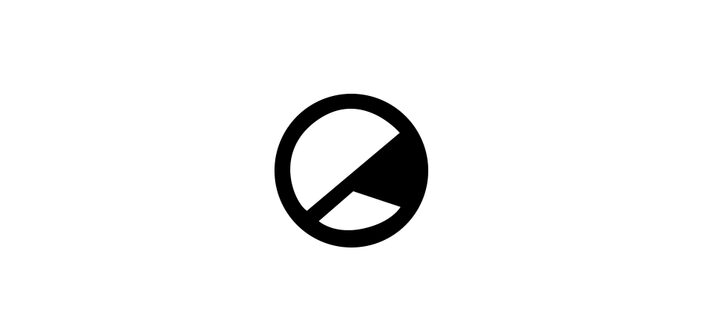Unmistakably hampered by studio involvement, but the sheer nerdy passion and complexity with which Jones works makes this worthwhile.
-
6
It’s incredibly easy to spot the difference between a film which makes big strides in the name of a studio’s cynical interests, and one where risks are taken by a truly talented filmmaker straining his every muscle to create something special under the weight of studio expectations. Duncan Jones’ third directorial feature is exactly in line with the latter category – his determination and vision in creating the Orcs in Warcraft: The Beginning alone, is the sort of landmark for CGI and motion capture that would be impossible to find in another director’s stab at this material.
Durotan (Toby Kebbell) leads his pregnant wife and his clan through a portal opened by his race’s shaman leader Gul’dan (Daniel Wu), from their dying world into the multi-race civilisation of Azeroth. Soon, the human king Llane Wrynn (Dominic Cooper) and the commander of his army Anduin Lothar (Travis Fimmel) must contend with the threat the Orcs pose to their kingdom, as they raid villages to take citizens as prisoners, and Gul’dan’s dark Fel magic spreads over the land as he prepares to bring the rest of the Orc horde through the portal. With the help of the Guardian mage Medivh (Ben Foster), apprentice Khadgar (Ben Schnetzer), and the half-orc Garona (Paula Patton), the humans must find a way to stop the spread of evil. Meanwhile, Durotan wrestles with seeking peace with the humans for his clan’s safety, as he grows suspicious of Gul’dan.
There are at least seven central characters in Warcraft: The Beginning, plus a handful of further supporting characters who require key moments and time to feel like more than window-dressing for the plot. This requires at least half an hour more than the audience gets – at just over 120 minutes, the film rattles along from plot beat to plot beat, and the first 20 to 30 minutes proves to be an almost overwhelming infodump of strange place and character names, as well as information about dark magic, good magic, character backstories, and more besides. It’s never particularly confusing, but it’s hard not to feel like something’s being lost.
The bulk of emotional work falls to the actors entirely, which has mixed results. Kebbell’s motion capture performance as Durotan is hands down the best character, as well as the best acting of the film; he’s the first character we meet, with a close up of his astonishingly detailed, well realised Orc face, atop an unreal, yet weighty and solid body. He’s thoughtful and noble in a way that most of his ilk are not, and Kebbell’s equally capable of bringing ferocious rage in action scenes. Jones is clearly personally attuned to the Horde’s search for a home, and Durotan’s dilemma over fatherhood and leadership – since he’s one of the few characters who ever gets purely character-based scenes in which to talk. This gives the whole Orc portion of the film an unfair advantage over that of the Alliance – whilst they jump around along plot lines, the Orcs are engaged in story struggles, amongst themselves and against the humans.
All the actors playing humans (or half-humans) attack the material with the same intent as Kebbell, but few succeed. Cooper’s king has the demeanour of a leader, yet his youthful face just doesn’t get across the weariness and wisdom that the material really requires. Patton’s performance as Garona is stuck between that of a hardened warrior, a bitter ex-slave, and a strange outsider to her human captors and companions. The tone changes and the different beats she’s required to hit aren’t served by the corset-tight plotting of the film, so she often feels a little stilted. Luckily, Fimmel’s knight and commander Lothar is a treat – he’s gamely funny and charismatic, yet can walk like he’s got the weight of the world on his shoulders, making every actor he appears with better.
It’s important to remember that Jones’ task was huge: bring a new world to the table, with its own dense mythology that’s clearly indebted to Lord Of The Rings; appease gamer nerds, whilst creating a compelling story and exciting action to rope general audiences into the challenges of Azeroth. On top of this, he had the guts to tell it with moral complexity, and all the weird magic and mystique of the world. It’s a film where both sides of the war can be understood, where their sacrifices are meaningful on an emotional level, but rarely have the larger effects we’re taught that they should; where every side has weak, corrupt or ineffective men. The emotions don’t always register, but it’s easy to understand what’s being said.
The action of Warcraft: The Beginning is the best summation of the film itself. There’s a grandiosity and passion in seeing huge armies collide, and characters rocketing around gorgeous vistas on giant eagles, but the camera all too often sweeps vaguely over a battlefield, following nothing in particular. It’s done more out of duty than by design. Yet that same passion is evident in the closer shots between brawling fighters, with a bone-crunching brutality, as well as a joy in the sheer act of magic onscreen. Sure, some of these close-ups are clumsy, but when it works, nothing this weird and this satisfying could possibly be found elsewhere.
Warcraft: The Beginning, directed by Duncan Jones, is distributed in the UK by Universal Pictures International (UPI), Certificate 12A.




